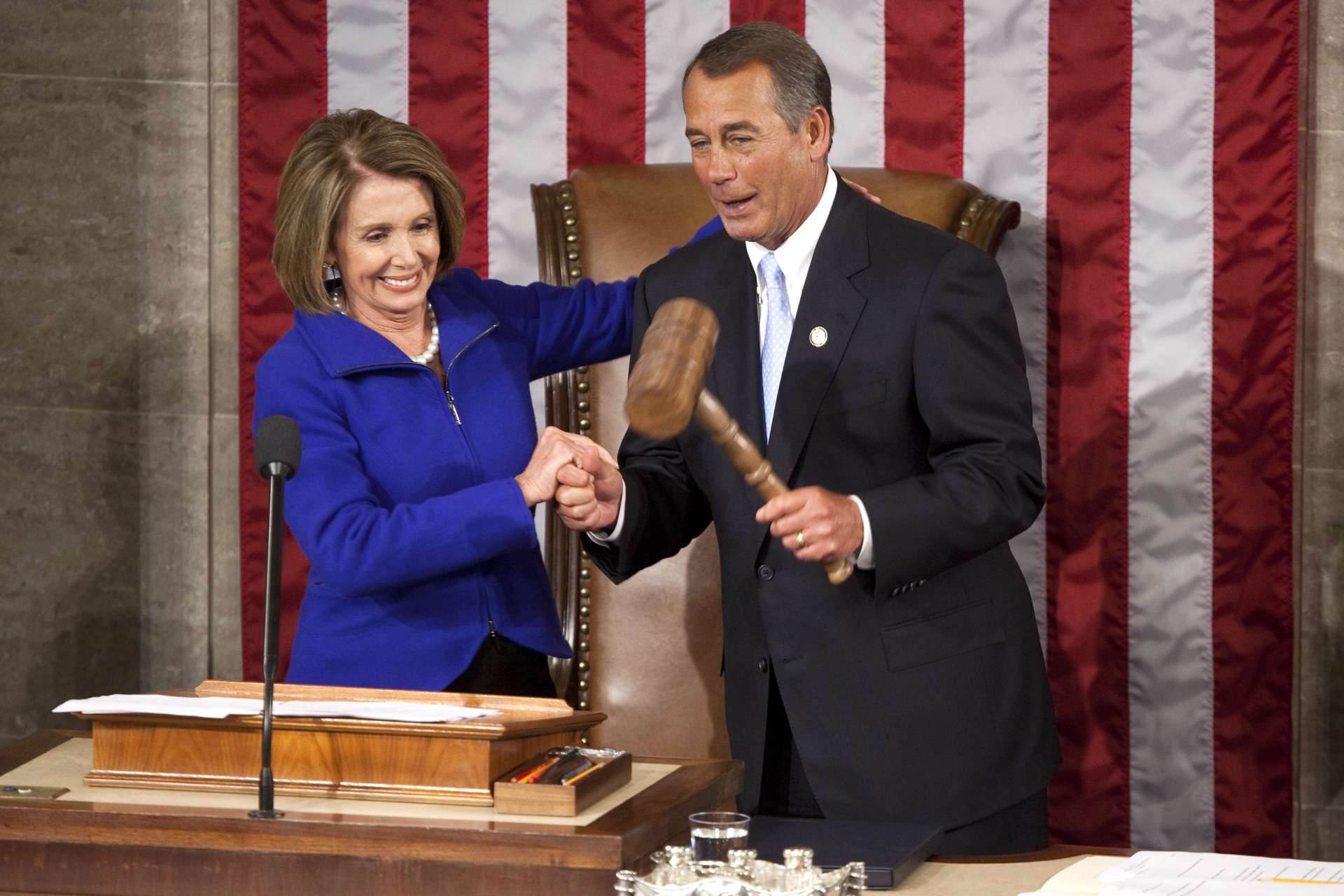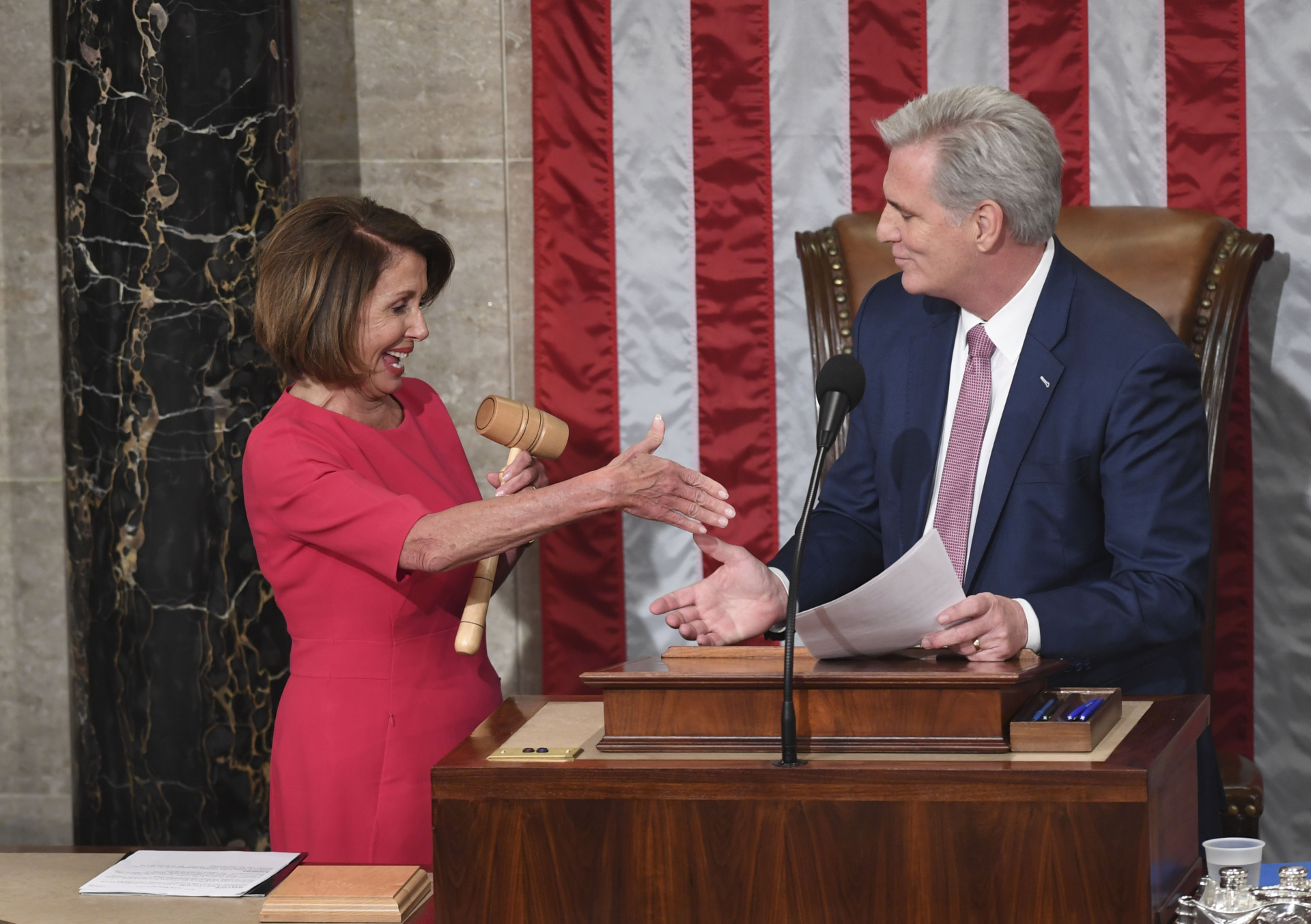The prospects for Democrats to hold their majorities in Congress are exceedingly slim.
In ordinary times, midterm elections tend to go badly for the party that holds the White House. The president’s party lost House seats in 17 of 19 midterm elections since World War II, according to analysts at J.P. Morgan. In the Senate, the party that controls the White House has lost seats in 13 of those midterms. On average, the president’s party loses 27 seats in the House and three to four seats in the Senate.
This year looks like it will go particularly bad for Democrats because anxiety over the cost of living is so high. Fifty-one percent of Americans say that inflation has had a lot of impact on their lives, according to the most recent survey from the Economist and YouGov. The Conference Board’s year-ahead inflation expectation is at seven percent.
Sixty-eight percent of the public says they will be thinking a lot about inflation when casting their vote this year. Biden’s job approval on the issue of inflation is just 32 percent, according to the Economist poll. Fifty-four percent say they disapprove of Biden’s performance on inflation, including 40 percent who strongly disapprove.
Consumer sentiment is staggeringly low. That typically spells trouble for the party currently in the White House. In October, the University of Michigan’s index of consumer sentiment stood at 59.9. That is an improvement from the all-time low hit this summer but much lower than at the height of the pandemic in 2020 and about equal to where it fell during the financial crisis in 2008. The average this year has been a reading of 59.1. In the ten months leading up to the 63 seat loss for House Democrats in 2010, the Michigan sentiment index averaged 72.
The last time consumer sentiment was even close to the current ebb during a midterm was 1982, coincidentally also the last time inflation was running as high as it has been. In the ten months ahead of that midterm, sentiment averaged 67 and had been as low as 62 that spring. The Democrats added 27 House seats in that election, solidifying their hold on the lower chamber. Republicans held on to the Senate but received about 5.5 million fewer votes than Democrats did.

Incoming House Speaker John Boehner (R-OH) shakes hands as he receives the gavel from House Minority Leader Nancy Pelosi (D-CA), as the 112th Congress convenes in Washington, DC, Jan. 5, 2011, following the Republican victory in the 2010 midterm elections. (Joshua Roberts/Bloomberg via Getty Images)

Incoming House Speaker Nancy Pelosi (D-CA) shakes hands as she receives the gavel from House Minority Leader Kevin McCarthy (R-CA), as the 116th Congress convenes in Washington, DC, on January 3, 2019, following the Democrat victory in the 2018 midterm elections. (SAUL LOEB/AFP via Getty Images)
The favorite political poll of the Breitbart Business Digest also comes from the University of Michigan’s survey of consumers. Instead of asking voters which candidate or party they want to win, the University of Michigan asks which party they predict will win. The results for the midterms were released on Friday, and they show that 36 percent of the public expect Democrats to keep control of the House and 39 percent expect Democrats to hold on to the Senate majority. Republicans are expected to control the House by 54 percent of the public, an 18 point lead. Fifty percent expect Republicans to win the Senate, an 11 point lead. According to Joanne Hsu, the director of the Michigan surveys, a lead of ten points or more is “highly significant.”
There is, of course, a partisan skew to the poll. Democrats tend to think Democrats will win, and Republicans tend to think Republicans will win. This year, however, Republicans are much more confident than the Democrats. Sixty-five percent of Democrats say they think they’ll maintain control of the House. The same share thinks they’ll hold the Senate. Seventy-seven percent of Republicans think their party will take the House, and 73 percent think they will take the Senate.
It may be the views of independents that will matter the most when it comes to midterm elections. Fifty-seven percent of independents expect Republicans to take the House. Just 33 percent expect Democrats to keep control. Fifty-two percent expect the GOP to win a Senate majority; thirty-six expect Democrats to emerge from this election with control of the Senate.
The public lacks confidence that the Democrats can be effective stewards of the economy. When the University of Michigan pollsters asked which party would be better for the national economy, 37 percent said it made no difference, and 37 percent chose Republicans. Only 21 percent said Democrats are better for the national economy. Among independents, 33 percent chose Republicans and 14 percent Democrats.
If the votes go the way these polls suggest, Republicans will be in a celebratory mood. They should be cautious, however, about predicting a looming end to Biden’s presidency. Just two years after the House Republicans lost more than two dozen seats in the 1982 midterms, inflation had been vanquished and Ronald Reagan was re-elected by a ten point margin, winning 49 states.

COMMENTS
Please let us know if you're having issues with commenting.